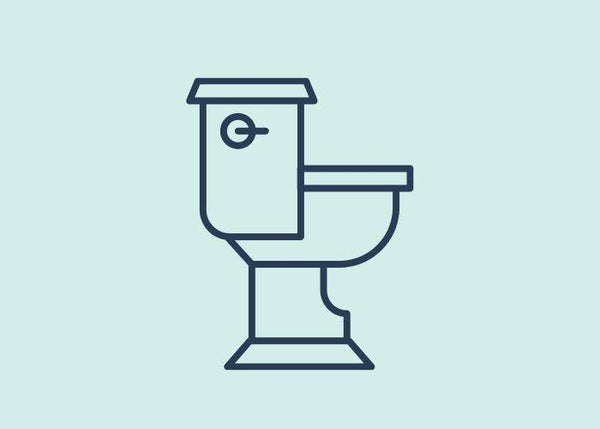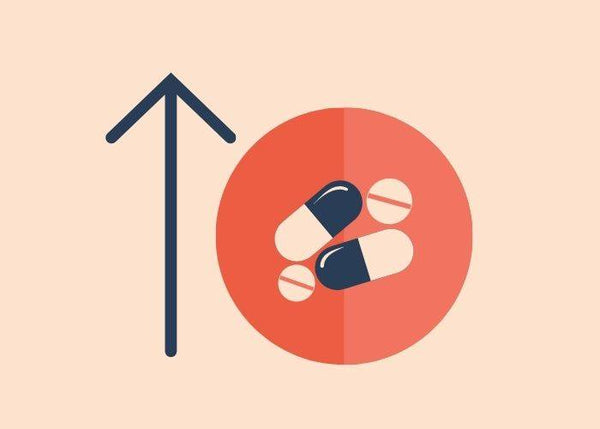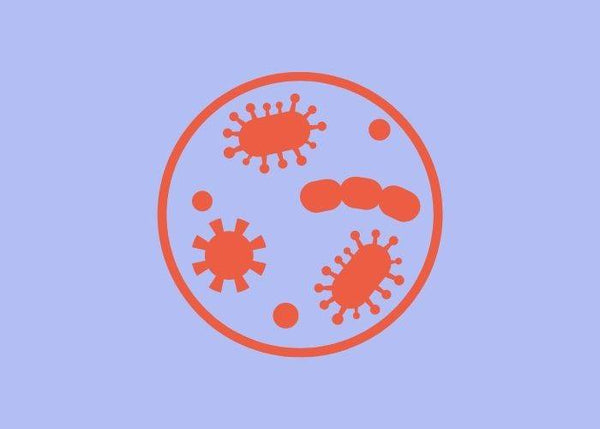The 3 components everyone should know about recurrent UTIs
Your urogenital health (that is, your vaginal health and bladder health) is all related.

Learn how a UTI can cause nausea and its connection to urinary tract health in our comprehensive Uqora Learning Center guide. Discover the correlation between UTIs and nausea and effective strategies for prevention and relief.

A UTI test strip and dipstick test for leukocytes and nitrites in the urine. When your urine is nitrite positive, it likely means there’s a bacterial infection. Leukocyte negative means that the amount of white blood cells in your urine are low and not secreting leukocyte esterase, which is a compound white blood cells excrete when they’re activated, or fighting off an infection.

Many women report UTIs in conjunction with or immediately following their menstrual cycle. Read on to learn precautionary measures.

While the IUD is an incredible form of birth control that has changed many women’s lives, like any contraception, it comes with its drawbacks.

Dr. Katherine Klos is a board-certified urologist practicing in Washington, DC and a Uqora Medical Advisor. She completed her medical training at the University of Alabama and her urology residency at The George Washington University. Since graduating residency in 2012, she has developed a practice that focuses on pelvic health for both male and female patients. Dr. Klos understands the multidimensional aspects of urologic care and believes in a partnership approach to help her patients reach their goals through traditional medical therapeutics and overall wellness strategies. Dr. Klos is also active in research and developing technologies, and she serves in an advisory role at the FDA. Outside of patient care, Dr. Klos is a talented pastry chef and enjoys spending time with her three young children.

When vaginal bacteria are out of whack, it can cause a mess of pH problems including BV, yeast infections, and UTIs. Learn how vaginal pH imbalance impacts your health and how to get it back in balance.

Learn about UTIs: self-resolution possibilities, risks & guidance. Explore more at Uqora Learning Center.

Learn about the benefits, risks, and tips for having sex during your period. Discover how to make the most of this intimate time.

We’re here to support you on every step of your journey, including understanding how UTIs symptoms can show up for different people. UTIs can often feel debilitating, and adding back pain into the mix can make you feel even worse. If you notice a dull, aching pain or sharp discomfort in your back while dealing with a UTI, it's important to seek treatment from your healthcare provider. This way, you can mitigate the infection from becoming more severe.

A urinary tract infection (UTI) is a bacterial infection that affects any part of the urinary system, which includes the bladder, urethra, ureters, and kidneys. Common UTI symptoms include frequent urination, painful urination, blood in the urine, and more. If a UTI progresses to your kidney, you may also develop symptoms such as a high fever, chills, and nausea.

While it's physically possible to have sex with a UTI, it's generally not advised to have sex during an active UTI. Anecdotally, having sex with a UTI can feel uncomfortable. Since a UTI is an active infection of the urinary tract, it could also worsen your symptoms, and potentially introduce more bacteria into your urinary tract. It’s generally recommended to hold off on sexual activities until UTI symptoms have cleared. There are a few sexual and urinary health measures that can support you in getting proactive about your urinary health, like peeing before and after sex, and making informed choices about lubrication.

Bacterial vaginosis (BV) is an infection that causes vaginal discharge with a strong, foul odor. Many cases of BV are asymptomatic, so it’s important to know what to look for. BV can develop after having sexual contact with a new partner, and can be treated with metronidazole. BV can be a frustrating cycle, we’re here to support you in understanding how it occurs, and how to prevent future infections.

Menstrual cramps can range in severity, but there are home remedies that can help alleviate some of the pain and discomfort you may experience each month. Changes in diet, better sleep, pain relievers, heat application, and exercise may all help reduce the pain of period cramps and relieve symptoms of PMS.

Yeast infections are caused by Candida, a type of fungus or yeast, and can affect various parts of the body including the skin, mouth, and vagina. These infections occur due to an imbalance in the body’s natural microbes, exacerbated by factors like antibiotics, hormonal changes, and a weakened immune system.

Interstitial Cystitis (IC) affects an estimated 3 to 8 million females in the United States (1). Yet still, bladder health is severely under-researched so there is no known cure for IC at this time. Although there is no cure for IC, there are a few known lifestyle changes that can help relieve symptoms of IC.

This guide is here to support you in understanding the differences between bacterial vaginosis, urinary tract infections, and yeast infections.

Sex is a common trigger of both urinary tract infections (UTIs) and bacterial vaginosis (BV), so an increase in sexual activity can therefore increase your risk of UTIs. It’s important to note that UTIs are not a sexually transmitted infection (aka you are not passing a UTI from one partner to another).

Talking about UTIs isn't always easy, but it can be. Discover tips for discussing recurrent UTIs with partners, loved ones, and colleagues.

Here's what to expect on the day of your cystoscopy. A cystoscopy is done to visually inspect the bladder and the urethra.

As your body’s estrogen level begins to decline in the years leading up to and after the menopause transition, your vaginal and urinary health may also be impacted.

Determining urinary frequency or overactive bladder (OAB) needs to take into account volume of fluid, type of fluid, diet, bowel pattern, stress/social factors, medication and the skeletal muscles of your pelvic floor, all of which affect urination.

Pelvic floor therapy includes a series of exercises to strengthen the pelvic floor and can help with urinary health issues. Read how to do some pelvic floor exercises at home from an actual pelvic floor physical therapist.

Dr. Alyssa Dweck, M.D. is a practicing gynecologist in Westchester County, New York. She specializes in women's health, sexual health and menopause.

Dr. Payal Bhandari, M.D. is a leading practitioner of integrative functional medicine and the founder of SF Advanced Health.

Pelvic floor exercises, or Kegel exercises, strengthen your pelvic floor and improve bladder control.

Evidence says that, yes, physical therapy can help prevent recurring UTIs.

Here's what you can expect at your first pelvic floor physical therapy appointment.

Yes, they are connected. If you're experiencing constipation, it's time to take a look at your pelvic floor.

UTIs and pelvic floor health are common urinary health concerns for the trans community. Aleece Fosnight, PA-C explains.

Amelia Glynn is a former journalist and current brand writer for health and wellness startups. She’s also a grateful Uqora customer.

Ureaplasma is a bacteria that lives in the respiratory and the urogenital parts of both males and females and is typically transmitted through sexual intercourse. If ureaplasma becomes too dominant, it can cause a UTI. Ureaplasma may not present in a standard urine culture and may go undiagnosed or be incorrectly diagnosed as Interstitial Cystitis (IC).

My name is Crystal Liu, I am 39 year old living in San Diego. I am here to tell you that life doesn’t end with an IC diagnosis.

This resource is here to help bridge the gap in information exchange between you and your healthcare provider when it comes to discussing your UTI treatment, and diagnostics. We're here with one goal in mind – to provide you with easy-to-understand and trustworthy information that will support you in preparing for your next doctor visit.

Antibiotic resistance is becoming an increasingly dangerous issue that can affect all of us. Learn more about how this threat can impact you!

Understand how UTIs and BVs are contracted from sex and what habits to incorporate to prevent them in the future.

Why do some people get more UTIs than others? Learn more about your urinary tract health and the recent study behind UTI frequency.

The link between our physical and mental health explained by four mental health specialists.

The short answer is yes, it is possible to get a UTI after a hysterectomy procedure. The long answer is that a UTI after a hysterectomy may not be directly related to the procedure and here's why.

The biological occurrence of a UTI is the same in both males and females: bacteria ascend up the urinary tract through the urethra and cause an infection. About 20% of all urinary tract infections (UTIs) occur in men and up to 14% of males will experience at least one UTI in their lifetime.

Here’s the ultimate guide to the function of the 4 major parts of the urinary tract.

Catheters can be used when there are complications with the process of urinary drainage. These complications can be long-term or short-term, and are generally used for therapeutic or diagnostic reasons to support the process of urinary drainage. UTIs attributed to catheter use are one of the most common infections acquired in healthcare facilities (8). In fact, approximately 75% of UTIs acquired.

Anecdotal evidence suggests that people with recurring UTIs swear by hydration as a preventative measure and studies have shown that drinking more water was associated with decreased occurrence of UTI hospital visits.

UTIs can come into play in all stages of life. However, in our older years, UTIs can not only present differently but can occur for different reasons.

As we age there are many biological changes that occur, which can increase your risk of UTIs.

From anecdotal, clinical, and survey data, you can get a UTI in a few different ways.

You are not alone if you think you are getting too many urinary tract infections (UTIs). Frequent (or recurrent) UTIs are common, especially in women.

How bacteria use biofilms to protect themselves from antibiotics, the immune system, and cause recurring UTIs that are difficult to fight.

Let’s be clear – leakage of urine is not an inevitable part of aging. Incontinence is a very common problem that affects up to 25% of women.

Check out some of the most common UTI questions Dr. Carrie Aisen has been asked and things you should know before treating one.

Doctors prescribe prophylactic antibiotics to guard patients from bacteria that cause UTIs, but, what’s the catch?